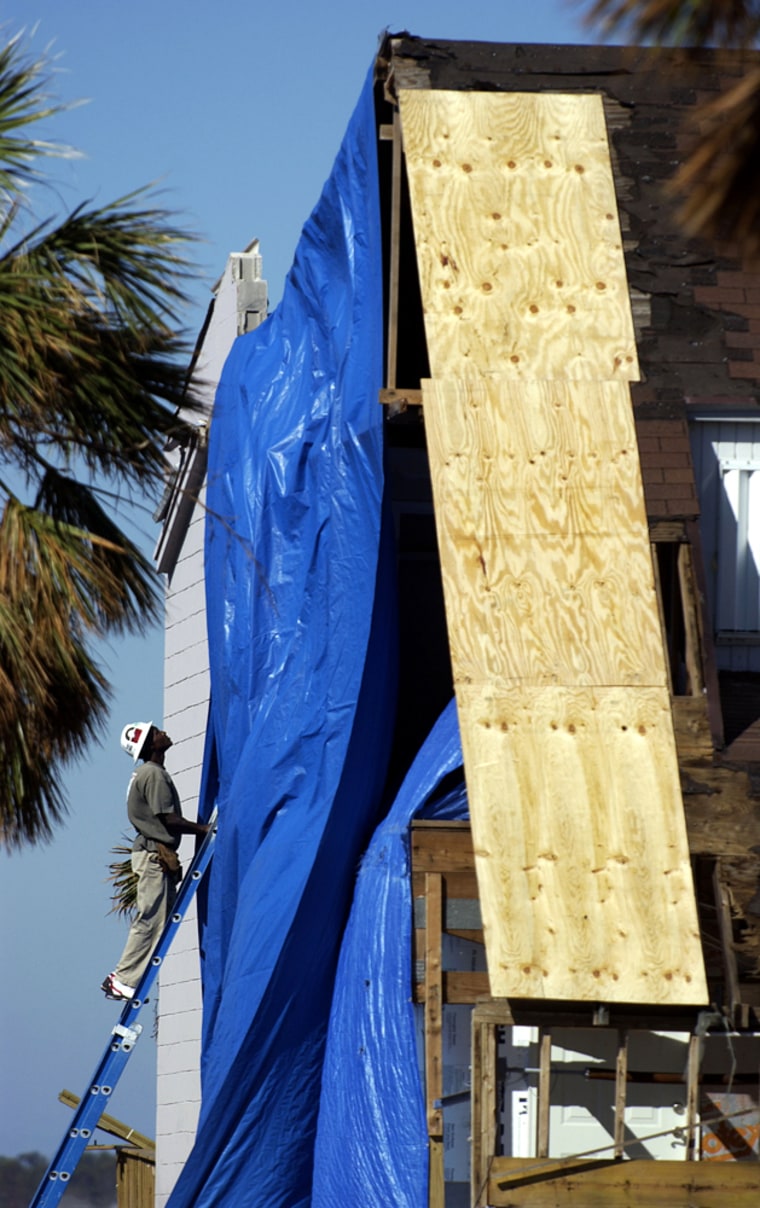It’s as predictable as the tides — what Florida's four 2004 hurricanes washed away, the government is putting back. From sand to 2x4's, there’s a gold rush of aid on the barrier island of Navarre Beach. But is rebuilding from beach to beach-front homes ignoring nature?
“The lesson is, don't build on the beach,” says Andy Coburn, part of a Duke University team studying barrier islands. “When we put static development on a dynamic island, we feel the need to go out and stabilize that island. We're trying to out-engineer Mother Nature, and I think we're failing.”
Geologists say Florida's “thumb” has been on a 15,000 year retreat — it's 200-miles thinner now. Man has slowed the rising sea, but not stopped it. Neither, it seems, has her fury dissuaded people from moving to the coasts.
“People say we're crazy, but I can't wait to get back here,” says Navarre Beach resident Caryn Martino.
Caryn and Mike Martino are part of the 37 million people who've built, or are rebuilding, along the U.S. coastline in the last 30 years.
Critics say government policies encourage homeowners to ignore the risks. There homes on more than half of Florida's 80 islands. Storms turn the islands into urban renewal projects for the rich. Once the insurance checks come in, people start rebuilding — usually bigger and usually better than before.
Attempts to curb coastal development on barrier islands by denying federal aid in some areas have been minimally successful. Federal flood insurance, wrongly called “hurricane coverage,” encourages building in flood-prone areas. And even when private insurance companies refused coverage in Florida's high-risk zones, the state established a money-losing “insurance-of-last-resort” company called Citizens, which today is under fire for not paying claims to homeowners like the Martinos.
“You go through life and you don’t ask for help a lot, but some days you need it,” says Mike Martino.
The ocean has always been a magnet for people, but with hurricane losses mounting — $20 billion in Florida this year alone — some are thinking those who take the most risk should shoulder more of the burden.
